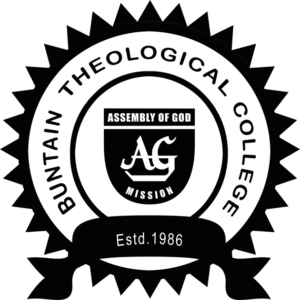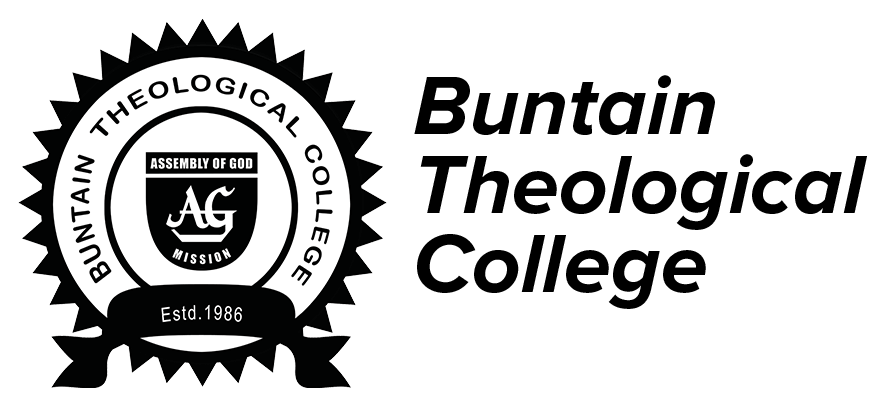The 21st Century has witnessed the seismic shifts from Modernism into post-modernism. This has culminated in apparent perennial effects on human emotions, perspectives and approach to life and immediate environments. While modernism was characterized by objective truth and its voyage of discovery through reason and science, the post-modernism is featured by subjective nature of truth to be determined by contextual and cultural relativity. While the reliance of Modernism remained on the metanarratives or an overarching interpretation and large-scale story-telling methods, the post-modernism stresses upon diversity of human experience and emotions attached to it. This unique reversal seems to have caused a colossal evaporation of the modern human rational and self-constraint approach. Instead, it contributes to the formation of identity crises, fragmentation of purposefulness and precipitation of the cloud of confusion. It seems to trigger untimely, unbridled emotional eruptions which swipe away all the moral and ethical moorings and traditional anchors of value systems across the landscape of humanity and Christianity is not an estranged island.
As the disciples of Jesus and followers of the Truth, we wrestle to remain true to our convictions in the deluge of demands of the age. The Dutch statesman- Abraham Kuyper highlights, “The greatest problem we have as finite creatures is relating with the infinite. The ultimate dilemma we have as creatures living in material bodies in a material world is how to gain meaning and significance beyond material existence” (Daniel R. Heimbach, 2011). A statement of homogenous nature is found from the great Missiologist John Stott as having said that ‘even after being saved and justified by the sheer grace of God from the eternal wrath of God and the sense of guilt, human beings still continue in sin, they are sandwiched between now and not yet’ (John Stott, 2008). In other terms, our salvation has not been brought to completion.
It is well known that the Greek word σωζω (sozo) is not only used in Present Tense, but also in Perfect and Aorist tense as well. Second Corinthians 2:15 Greek word “τοις σωζομενοις” [tois sozomenois], meaning (those who [are] being saved) and “τοις απολλυμενοις”[tois apollumenois], meaning (those who perish).
If it is simplified it can be said that they have not yet perished nor have others reached heaven. So, between justification and glorification, there is an important spiritual protocol by the name of sanctification, without which the entire process will remain unaccomplished.
The tension between now and yet to come creates an ethical dilemma, hurls an individual into the gulf of uncertainty, leading into discomposure as well as bewilderment. In the process they become the victim of it and lose self-control and simply follow the contemporary trend without eyeing at the future consequences. Therefore, instead of communicating the gospel of the truth, they end up compromising with the truth of relativity, instead of confronting Consumerism[1], they are found reclining on its couch, instead of navigating complex moral issues such as gay marriage, internet pornography, divorce, homosexuality, live-in relations, abortions and genetic engineering most are seen efficiently doing the bypass surgery without touching the core part, instead of living with integrity it ends up leaving. Prophetic voice seems to be super active in terms of prosperity, but less effective in spiritual fecundity.
Formidable foes of ethics and morality engirdle human life in this age of ethical eclipse. The world is moving at a high velocity and changing so rapidly that the value systems seem to have fallen short and even they are challenged! When truth is relativized the volume of the moral and ethical voice loses its original resonance. Social injustices, inequality, corruption and exploitation reach its maximity. Digitalization as the by-product of globalization takes the technological advancements to a zenith of success in terms of giving more comforts to the life lived in the present era and an unprecedented inclination towards consumption seems to generate an unhealthy equation of selfish relational dynamics. This tendency towards self-absorption breeds greed, acquisitive and mercenary approach and put the moral fulcrum on a topsy-turvy. Such persistent moral as well as ethical dwindle and decay has not only crept into the pores of the human societal structures, but also invaded every domain of human existence and social institutions.
People moved away from closed marriage[2] into open marriages[3], telephonic culture [4]to selfie culture[5], procreational sex to recreational sex, Heterosexuality into Homosexuality, from Monogamy [marrying one wife] to Polygamy [marrying multiple wives] and now Sologamy [marrying to self]. It is probably not an exaggeration if it is said that sexual chaos in the culture (Daniel R. Heimbach, 2011). Today people are not overwhelmed by the rampant promiscuity or marital infidelity or failure to set up a virtuous example, but become aroused by sexual entertainments. It results in breaking of marriages not only in Hollywood, Bollywood or Tollywood, but ‘it has even become a domestic phenomenon. Pornographic addiction keeps people in immoral shackles, leading to brainlessness and stupidity’ (Daniel R. Heimbach, 2011). 21st Century major ethical concern is the urbanization and industrialization at the expense of the green revolution. The environmental plunder has culminated in climatic changes, pollution, and extinction of different species which remain as integral part of the whole fabric.
Even in the context of such extreme ethical enigma and moral muddle when the flame of morality and ethics flickers, the Church must live as the people of God in the world [Deut. 7:6; 1 Pet. 2:9-10; Eph. 4:1-3; Matt. 5:13-16]. The ethical triangle that involves God on the top of the pyramid and Israel and Land of Cannon remained on the two sides of the base of the triangle. These three angles of a pyramid reveal theological, social and economical angles. The theological angle throws light on the fact that the LORD is the God of Israel, secondly Israel has been displayed as an elect people of God for His special purpose (Gen. 12:1-3). Thirdly, the Land being given to the nation of Israel by God. So, God, Israel and Land remains intertwined. In a narrower sense from the Old Testament perspective it can be said that the Church is an elect people of God to continue in a unique relationship with God through personal holiness and ethical integrity. Before God gave them law, they had been allowed to taste the Exodus or physical deliverance out of which a genuine sense of commitment was birthed in their hearts that led them to the Law (Torah). Therefore, God, Israel and Land had been the three columns of the Israeli worldview and they became the pivotal points for their theology and ethics.
If it is framed in a simplified manner and it can be stated that primarily the people of God must stay connected vertically to their Creator and Savior in an upward relationship [theological angle]. But the Land in the second place belongs to the LORD and gives to His people and makes them responsible for it (Gen. 2:15) [Economic angle]. Thirdly, the people of God remain responsible both to God vertically and to the given land horizontally [Social angle].
Therefore, whatever human beings do to his land or the way they interact as well as reciprocate with others have their boomerang effects on themselves as both the land and people are directly connected to God. That was why in the Old Testament whenever Israel violated the divine norms either at the personal level, or political level or social level God considered them as being unethical and the prophets foresaw the disastrous effects on them. Even in the Ten Commandments (Decalogue Ex. 20), the first four commandments are upwardly connected, while the rest of them remain rooted to the social domain. In the Sermon on the Mount Jesus brings the completeness to it as He not only quotes them but He also makes inner being more responsible for it (Matt. 5-7). In I Corinthians 3:16 Paul reminds, “Don’t you know that your body is the temple of the Holy Spirit and if anyone destroys God’s temple, God will destroy him.” Adam in the Garden of Eden was given the responsibility to keep, cultivate and protect the land (Gen. 2:15). As Adam failed in his moral choice it not only brought disparity and ethical drift, but human beings suffered the immediate fruits of his own fiasco – being spiritually alienated from the Creator, humans became the part of death and decay and the eternal separation. King Solomon built the temple and dedicated to the LORD (1Kings 6:14; 37; 7:12; 2 Chronicles 6). Nevertheless, he himself violated God’s command and indulged his foreign wives to keep and worship other gods and defile the temple (1 Kings 11:10). King David moved from pastoral experience to palatial opulence. Still, he misused the power and the authority of the King over the nation of Israel. He not only took away the wife of Uriah, but he was even sent intentionally to the battlefront to be killed. Even though David was the man after God’s own heart, he was not exempted from his chastisement. In spite of being deeply repentant and remorseful (Psalm 51), David had to accept God’s retributive reaction in response to his injudicious, impudent immoral actions (2 Samuel 12:11-12). On the contrary, when pure devotion, loyalty and allegiance displayed before God, He can elevate an individual from pit to palace (Gen. 37, 38, 39).
Therefore, God is not the respecter of persons. It does not matter who is sitting on the throne and who is ruling, God remains above everything else. Karl Barth recounts, “Strange new world within the Bible” and “it is not the right human thoughts about God which form the content of the Bible”, but “the right divine thoughts about men” (Grenz and Olson, 2009). In other words, the Barthian arguments resort on the premise of “theology from above” which actually overthrew the concept of “this-worldly” propounded by Overbeck (Colm O’Grady, 1970). Barthian theme is dynamic eschatology, the irrevocable motion from a meltdown temporal order into a new structure and organic arrangement created and ruled by God. The complete replenishment of the original creation. So, even in the context of post-modernism and its by product called cultural relativity, a true follower of the truth can live a life of morality, integrity and stay ethically organic as the eyes are fixed upon not on “this-worldly”(Jn. 17:14;16;8:23-28), but on the “theology from above” and the Master’s Vessel (2 Timothy 2:21).
[1] Consumerism is driven by market economy sustained by materialistic values that revolve around the beliefs that having more material possessions ensures more happiness and promotes success. This materialistic philosophy encourages people to buy things they don’t need. Consumerism creates desires for material possessions that lead to economic transaction. [2] Closed Marriage involves a relationship in which both partners remain deeply committed to each other and maintain exclusivity with outside partners. [3] Open Marriage is a type of marriage in which both partners consent to have sexual relationships outside of marriage. [4] Telephonic culture refers to established norms and overall etiquette considered appropriate while having interaction over phone. [5] Selfie culture primarily refers to the practice of clicking self-portraits and sharing by the use of Smartphone. But this goes beyond and eventually takes the form of self-obsession.

